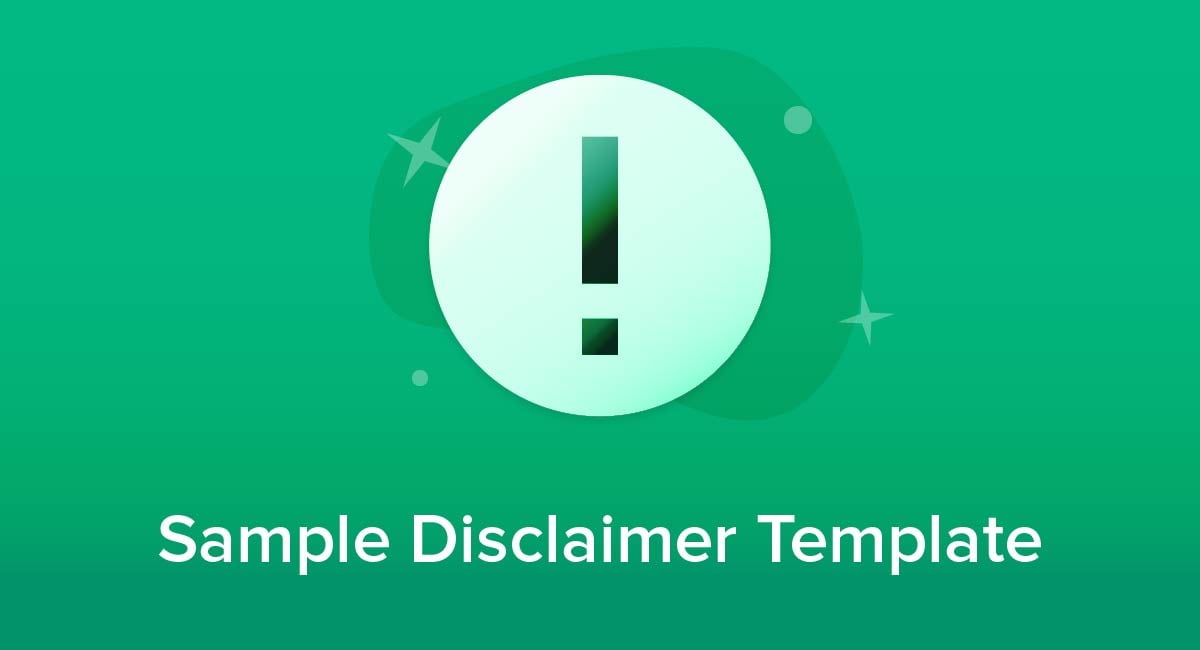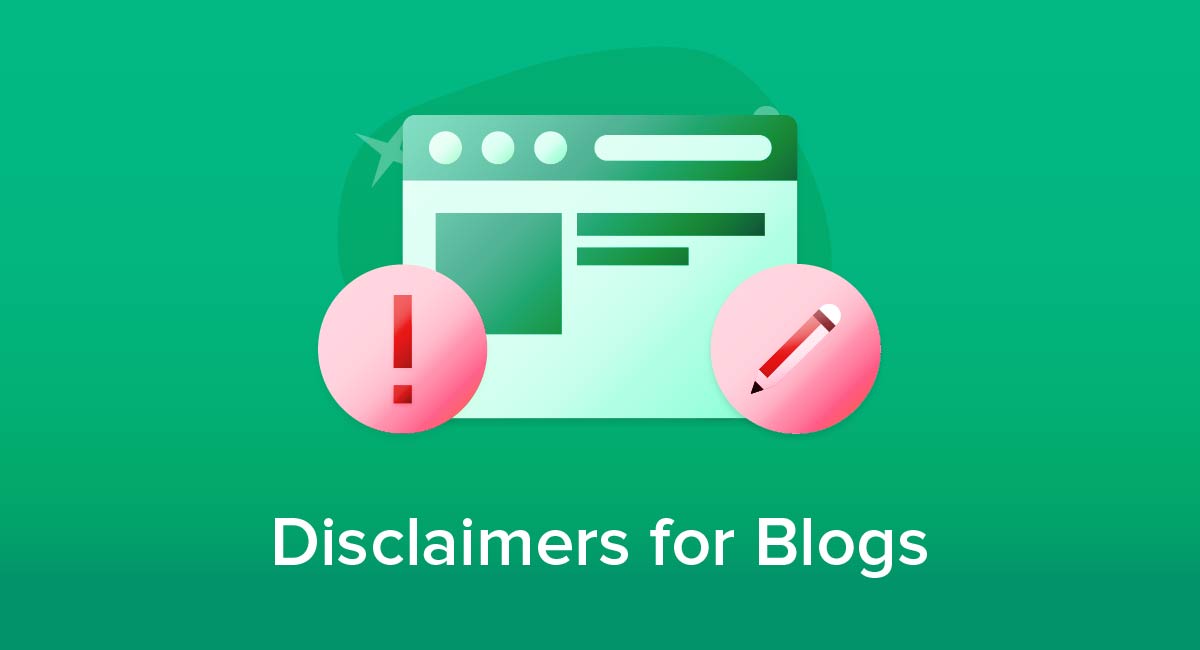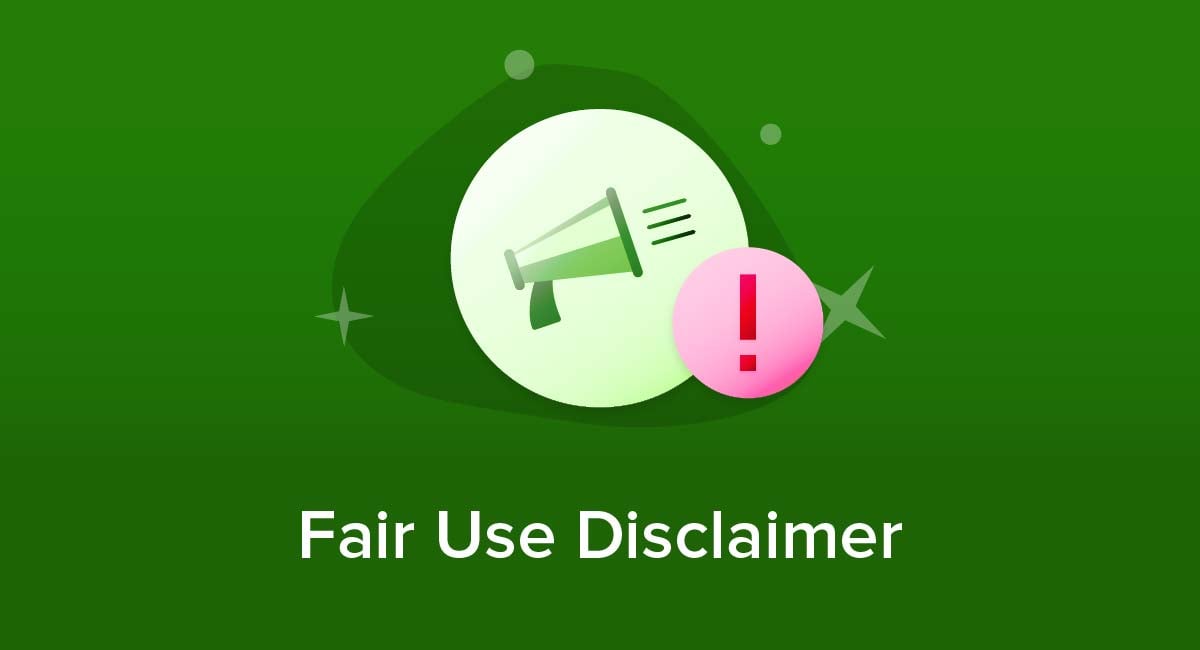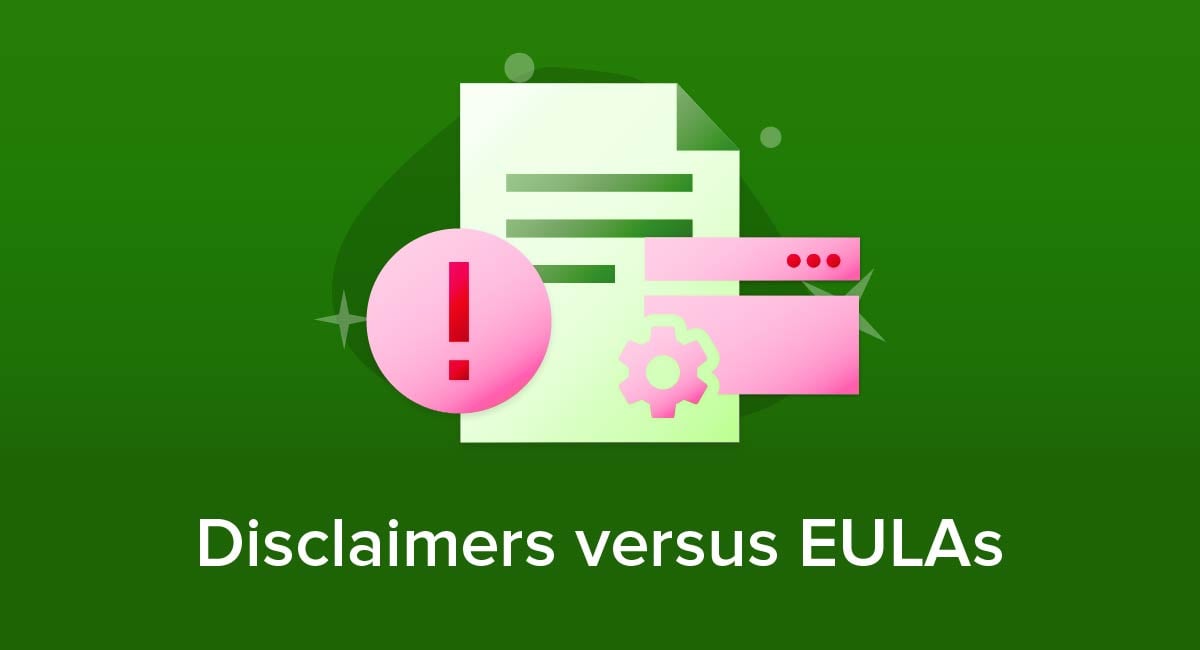
What is the difference between a disclaimer and an EULA? Should your website have one or the other or include both of them?
Protecting your company or website from potential legal action is paramount. Making sure you have the correct legal agreements or statements on your site can do that. For software developers, this can be extremely important if hundreds of people are downloading your software.
This article will walk you through what the difference is between disclaimers and EULAs and why having both will help safeguard you against potential legal issues in the future.
- 1. What are Disclaimers?
- 2. What are EULAs?
- 3. How do Disclaimers and EULAs Differ?
- 4. Examples of Disclaimers
- 4.1. Limitation of Liability
- 4.2. Disclaimer of Warranties
- 4.3. Third-Party Disclaimers
- 4.4. Return Policy Disclaimer
- 4.5. Medical/Legal Disclaimer
- 4.6. Affiliate Disclaimer
- 5. Examples of EULAs
- 5.1. Use of the Software
- 5.2. Restrictions of License and Use
- 5.3. Limitation of Liability for Software
- 6. Summary
What are Disclaimers?
Disclaimers are statements made by your website that notify users of what you "disclaim" or do not promise to them.
Our Free Disclaimer Generator is designed to help you comply with the requirements of various affiliate programs, such as Amazon Associates. It also includes various disclaimers like medical disclaimer, fitness disclaimer, website disclaimer and so on.
Just follow these few simple steps and generate a Free Disclaimer for your site or your app:
- Start by choosing the "Free Disclaimer Generator" on our site.
-
Then select where your Disclaimer will be used on:
-
Follow with adding your website/app information:
-
Enter the country and click on the "Next Step" button:
-
Continue with building your Disclaimer and answer on questions about your business from our wizard:
-
Now just enter your email address where you'd like your Disclaimer sent and click on the "Generate" button.
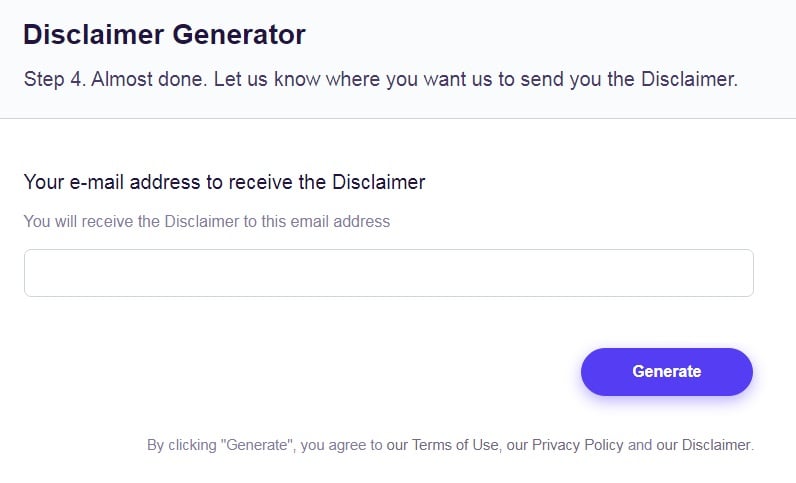
You're done! You can copy and paste your Disclaimer code into your website/app, or link to your hosted Disclaimer page.
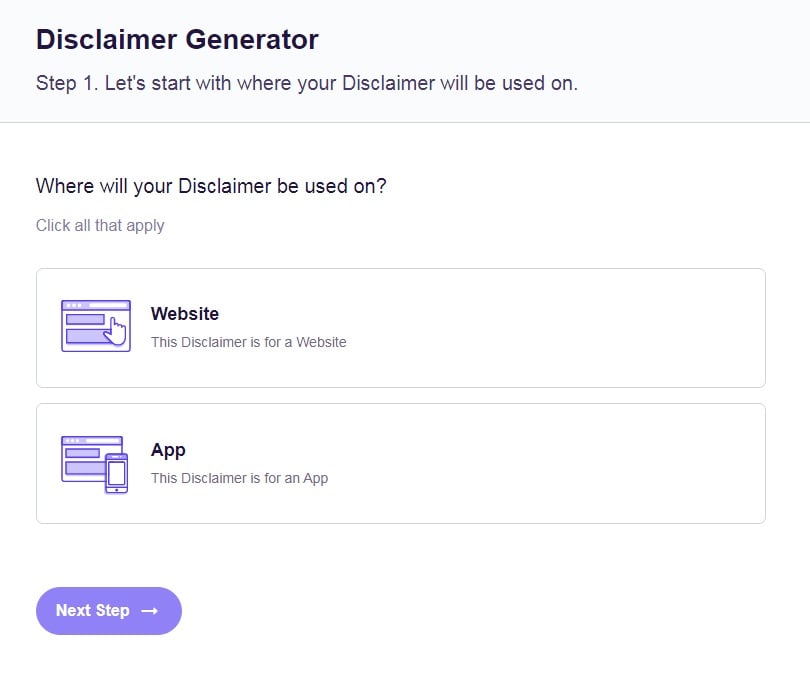
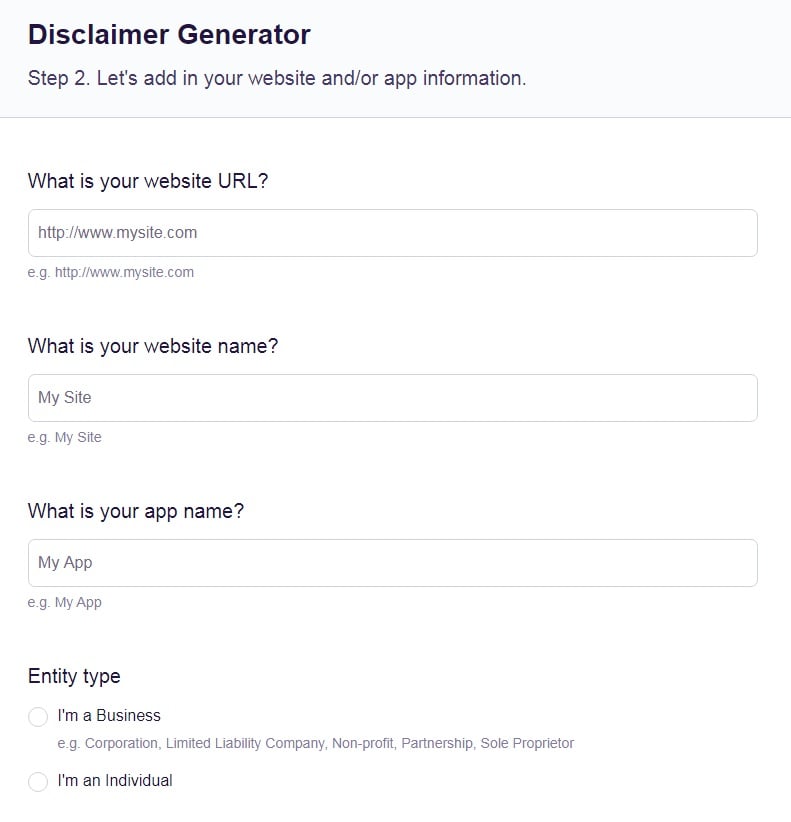
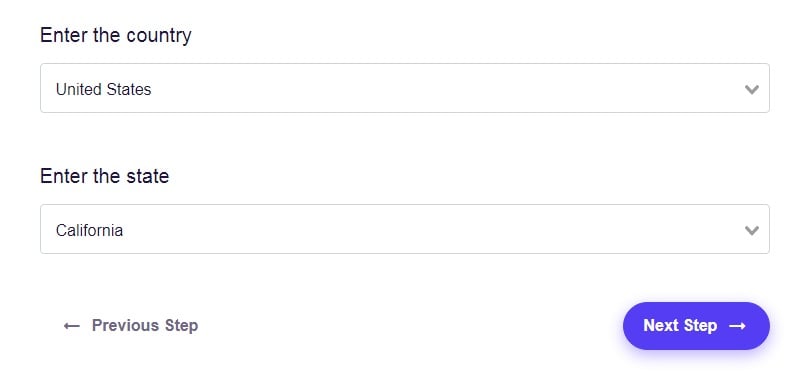
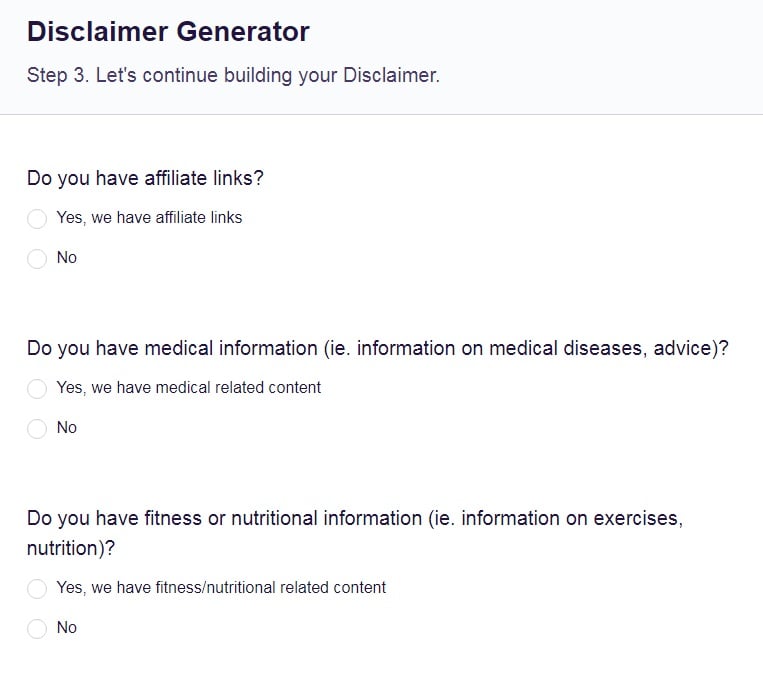
Typically these have to deal with disclaiming liability for issues arising out of:
- Use of the website
- Errors or omissions found on the site
- Third-party links
- Shipping or returns issues
- User-uploaded content
These statements are not legally required but are essential in protecting your site against potential issues if a user pursues legal action for damages they received while using your site. Not including them could leave your site open to liability due to lack of notification.
They can also be used as a way to notify users about links or affiliates on your site and how the information on your site or app should be construed.
Disclaimers are commonly found in a site's Terms and Conditions agreement as both relate to how users may use a site. They can also be their own separate page. How many and what disclaimers to include depends on you.
What are EULAs?
EULAs (end-user license agreements), sometimes called software licensing agreements, are used by software companies to dictate how a user may use the software.
Our Free EULA Generator is built to help you create a professional drafted End-User License Agreement. Just follow these steps:
- On our website click on the "Generate Free EULA" button.
- Start with the basics, select the type of app and click "Next step":
- Add your app information and enter the country:
- Customize your EULA and answer a few questions about your app:
- Now just add your email address to receive your EULA and click on the "Generate" button:
- You're done! You'll be able to instantly access and download your new EULA.
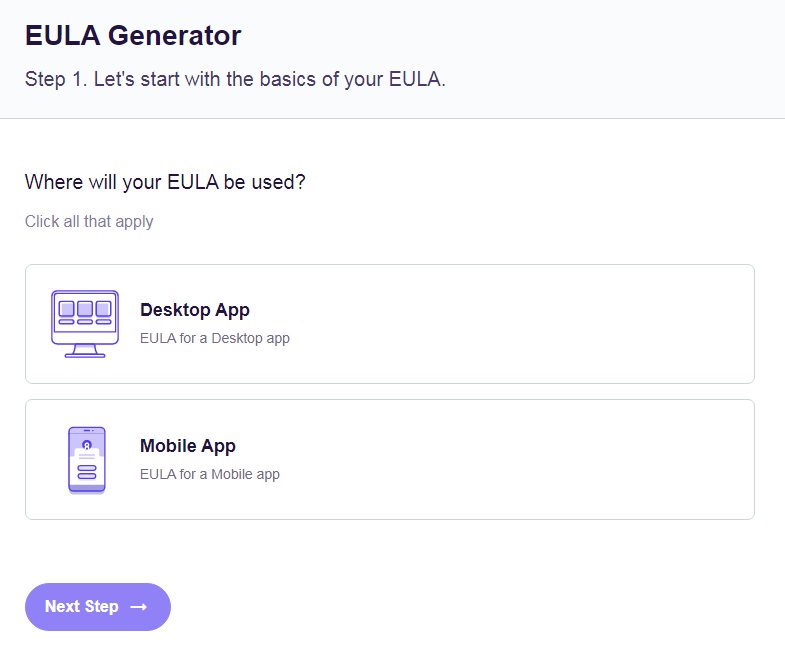
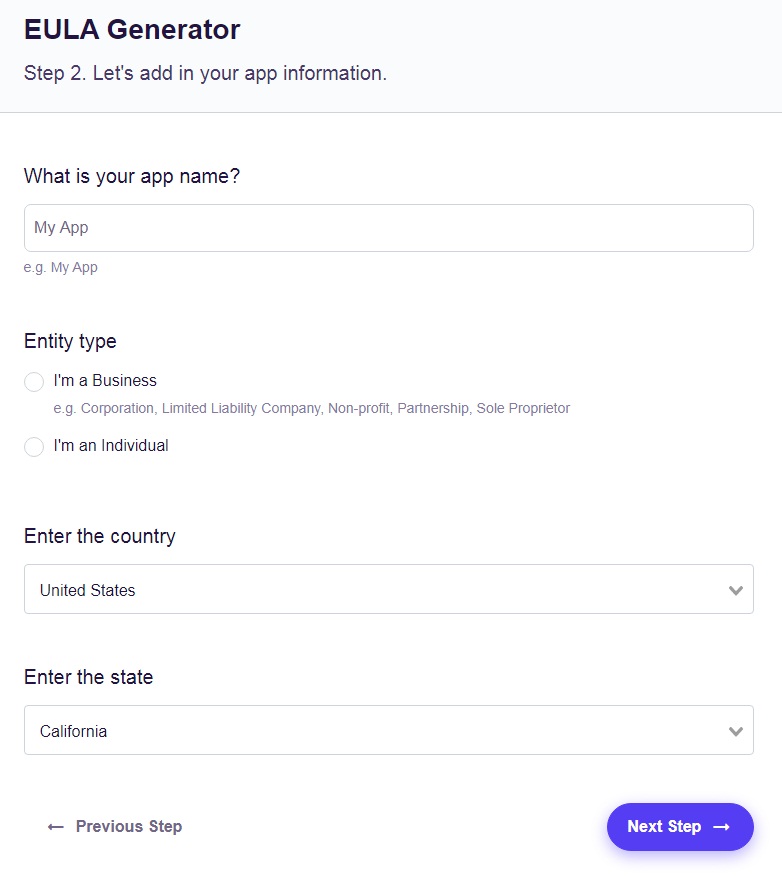
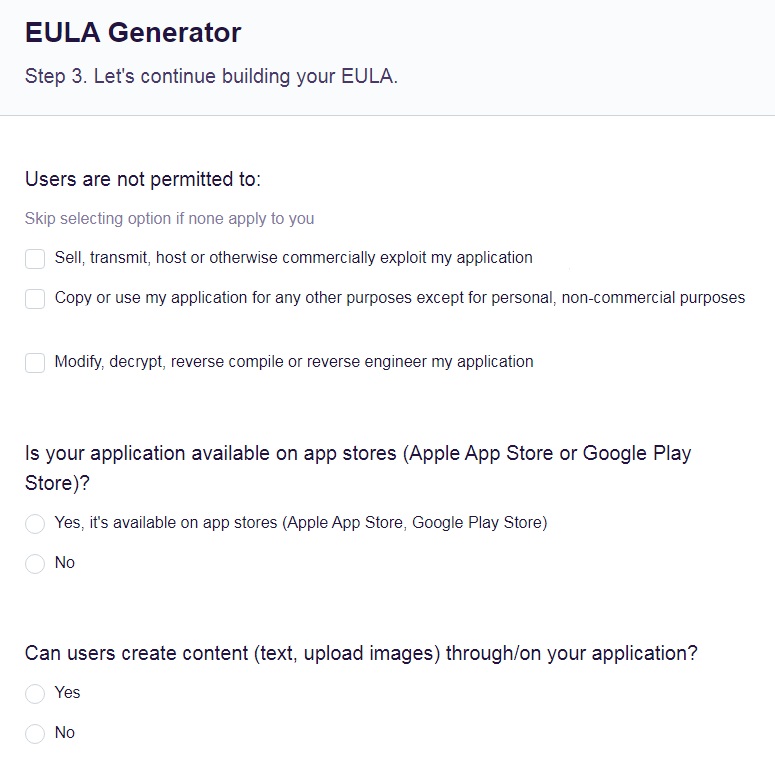
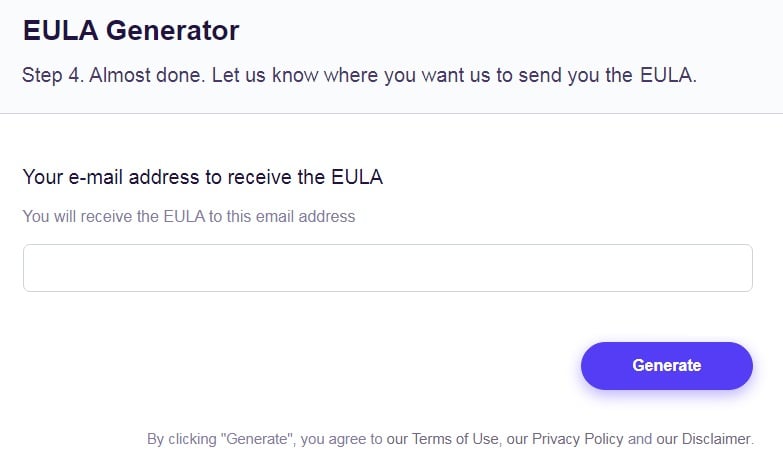
Similar to how a Terms of Conditions agreement informs users on how they can use a website, an EULA states what a user may do and what they are prohibited from doing with the software. The terms allow the company to control how the software is being used while allowing users some freedom as to how they want to use the software.
A company could have multiple EULAs as well, i.e. Apple. If you provide software to companies, general consumers, or have multiple types of software, you will have an EULA for each of those.
EULAs can be found on websites under the general legal section for the site. They can also be found on clickwraps or notifications when there is a software update. Consumers usually will have to agree to the EULA before they can install the software or the update.
Take a look at how Opera does it:
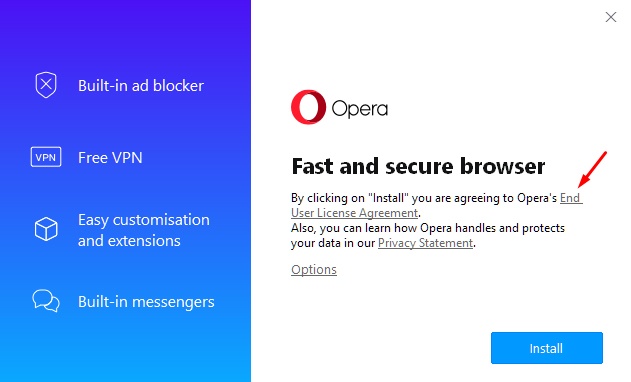
EULAs are not legally required but are highly recommended to protect your business and your software.
How do Disclaimers and EULAs Differ?

As we mentioned above, EULAs are similar to a site's Terms and Conditions Agreement and disclaimers can be found in a site's agreements. This is where these two can be easily confused.
A disclaimer is a simple statement found within an agreement, while an EULA is an actual agreement. EULAs can have disclaimers in them.
Disclaimers are more specific than EULAs and can pertain to different uses of the software or the site generally. Disclaimers can be found in other agreements on a website or app. An EULA is a single agreement and not part of any other policy or agreement.
Take a look at two Disclaimers of Warranties found on Dell's website.
The Disclaimer of Warranty from Dell's EULA specifically mentions what it does not warrant for the software that is purchased and users take the software "as is."
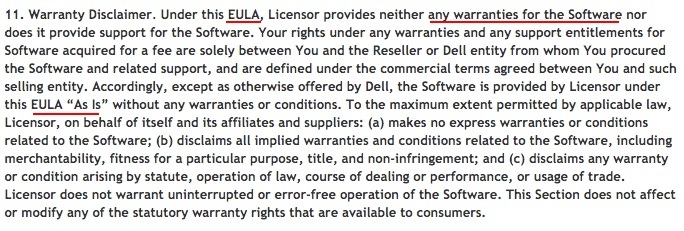
Dell's General Consumer Terms of Sale has a Disclaimer of Warranty that covers all purchases of Dell hardware and includes services and software as well:
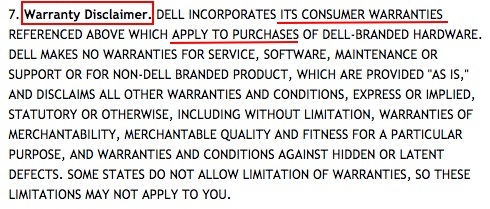
To help you keep them straight, you can think of an EULA as a whole pie related to how consumers can use software and a disclaimer is just a piece of that pie.
Examples of Disclaimers

Not every website or software company will have the same disclaimers. What you choose to disclaim or not warrant is entirely up to you. It all depends on the services and software your company offers.
Below are some key disclaimers most websites have and a few that are specific to a certain type of website or app.
Limitation of Liability
It's standard procedure for most websites, apps, or software companies to have a Limitation of Liability Disclaimer. A Limitation of Liability Disclaimer states what the site is not liable for or the limitations of its liabilities to users.
Having this disclaimer is essential to safeguarding your site if a user encounters issues when using your site. For example, if they rely on an error on the website or their use of the site is interrupted for any reason.
YouTube offers a good example of how this disclaimer can cover multiple liability issues:
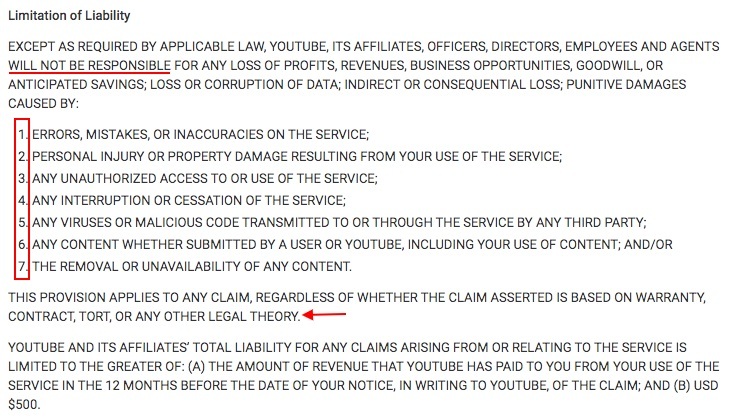
Disclaimer of Warranties
Disclaimers of Warranties are where your site does not warrant or promise a warranty to users. This can be that the website won't have issues or that products won't wear and tear. A Disclaimer of Warranty can be specific to the site's services or more general, like Dell's two Disclaimers of Warranties seen above.
Common wording you'll find in a Disclaimer of Warranty, and is highly recommended to include, is AS IS." This means the user is agreeing to take the site as is with all of the issues or errors that come with it.
DSW's disclaimer includes this language and reminds users that they use the site at their own risk:
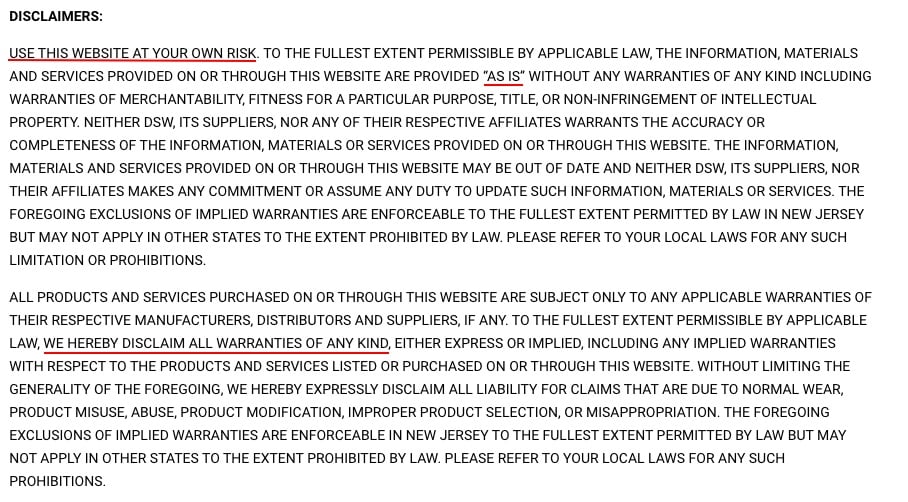
Third-Party Disclaimers
Another common disclaimer is a Third-Party Disclaimer. These relate to any third-party links a user may encounter while on a site. In these disclaimers, you can help to limit your liability if a user has an issue if they click on the third-party link.
Take a look at how Principal does it:

Return Policy Disclaimer
EULAs are specific to software. Disclaimers can also be specific to certain services as well. An example of this is a Return Policy Disclaimer. For ecommerce stores, a Return Policy Disclaimer is a must. It allows your company to control how returns must be made, in what condition, and when returns may not be accepted.
Check out how Best Buy does it in a "special considerations" clause that works like a disclaimer:
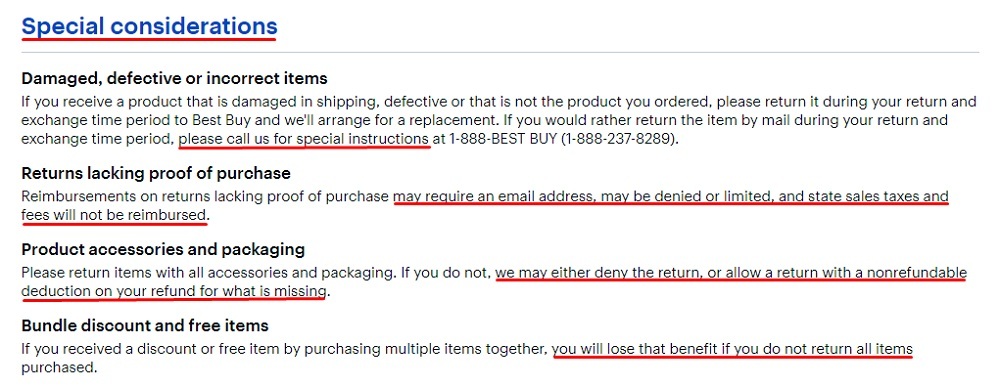
Medical/Legal Disclaimer
Blogs or websites that feature tips or information on legal, medical, or financial issues often have disclaimers notifying users that the site should not be used or taken as actual professional advice. This protects the website from misunderstandings or if a user files a legal action based on information from the site.
Shape Magazine is part of the Meredith Corporation and its general disclaimer states that any of Meredith's products, including Shape Magazine, shouldn't be taken as legal or medical advice:

DLA Piper has a legal disclaimer reminding users that the website is for "informational purposes only" and providing information does not create an attorney-client privilege, but rather that the information on the site is not professional advice:

Affiliate Disclaimer
Disclaimers are not legally required. However, there is one disclaimer that is required by the FTC. If you receive a commission when a user makes a purchase from an affiliate link on your website, then you are required to include a disclaimer regarding this.
The affiliate disclaimer needs to be placed close to the area where the affiliate link is. If this type of disclaimer applies to you, you'll need to follow some strict requirements for creating and displaying the disclaimer.
Nomadic Matt includes a disclaimer on every page that has affiliate links:

Remember, there are other disclaimers that you may want to include on your website. These are just a handful of commonly-seen ones.
Examples of EULAs

Each EULA is drafted to fit the specific company and the type of software being used. That being said, there are some common clauses in most EULAs:
- How the software is to be used by the consumer
- Restrictions on how the consumer may use the software
- The rights users have in the software
- Limitation of liability when users use the software
- How personal information is protected
Let's take a look at some of these EULA clauses.
Use of the Software
Each EULA should have a section stating how a consumer may use the software. Like a T&C, this is where you can clearly state what a user is allowed to use the software for and the rights a user may have in the license of the software they purchased.
Apple's iTunes Software License Agreement grants a limited non-exclusive license to a consumer to download the software and states what the limits are to that license."

Restrictions of License and Use
Most EULAs do not grant a full license to the software. If they did, then they wouldn't be able to control how the software is being used or if it is being resold to others. Software companies will include a section in their EULA that states what the restrictions are on how a consumer can use the license.
Here's how Adobe does in its CS6 Software EULA:
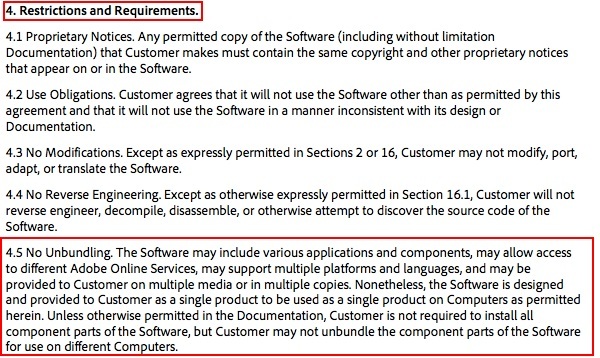
Adobe includes a restriction that is commonly found in EULAs about no unbundling or that a user may not install only portions of the software, but that users must use the software as a whole or single product.
Some EULAs also include language restricting reverse engineering of the software or not allowing users to disassemble or modify the software to protect the company's rights in the product.
macOS Catalina Software License Agreement has a separate section in its EULA for this specific reason:

Purchasing software means a consumer has some rights in the software. Companies often include a clause stating those rights are not transferable to others. This is important as many people are sharing software they have downloaded to save money.
An example of this is from Adobe's CS6 EULA:

Limitation of Liability for Software
Limitation of Liability Disclaimers are also found in EULAs. In addition to how your software should and shouldn't be used, stating what your liability limitations are is just as important. Noting your software's limitations can protect your company if a purchaser develops an issue from using the software.
Dell's End-User License Agreement is an example of this:

Summary
If you offer software to consumers, it is recommended to have both disclaimers and an EULA available to the consumers.
Since disclaimers can be part of an EULA, which can cause some confusion, here are some key things to remember about each:
-
Disclaimers:
- Are statements, not agreements
- Disclaim or do not promise certain things to users (i.e., liability)
- Can be part of other agreements
-
End-user license agreements:
- An agreement stating how a user may use or not use software
- Similar to a Terms and Conditions, but pertains specifically to software
- States what rights the user and company have in the software
